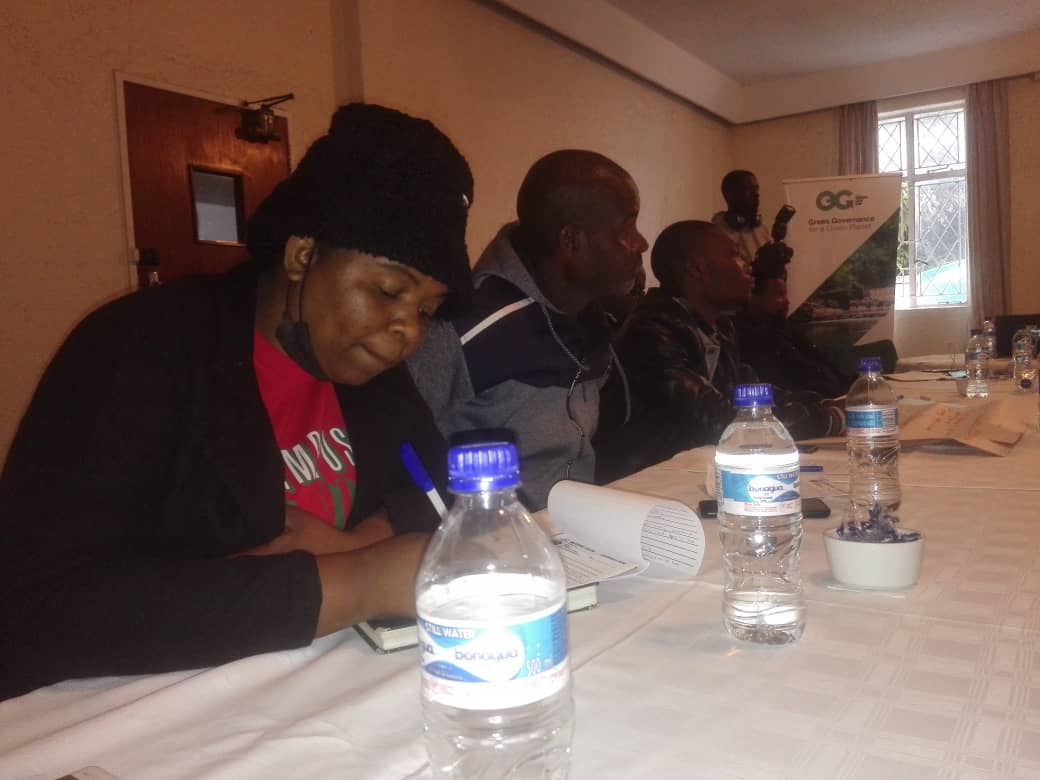|
Getting your Trinity Audio player ready...
|
By Clayton Masekesa
Mutare – Community-based organizations (CBOs) based in Mutare have advocated for mechanisms that ensure local authorities are accountable and transparent in their processes that bring effective service delivery to communities.
This came out during a reference group meeting held in Mutare on Wednesday, under the Social Accountability Project (SAP) that is being initiated by the Association of Community Based Organizations (ACBO), which is a national initiative that is aimed at ensuring that local authorities are accountable and transparent in their service delivery processes.
The Green Governance Zimbabwe Trust (GGTZ) is leading the project in Manicaland. The committee comprises CBO representatives, councilors, youths, women, persons with disabilities, and the media.
The project, which began in May this year and ends in 2025, will focus on land, water, and housing issues in local authorities among others.
Addressing the reference committee members, GGTZ Director Frank Mpahlo, said the main purpose of the committee is to forge mechanisms that will monitor local authorities on accountability and transparency in the use of public resources and provide adequate service delivery.
“We are here to discuss the pressing issues around our communities. We are advocating for mechanisms or ways that can initiate accountability and transparency on service delivery processes by local authorities,” said Mpahlo.
“As CSOs, our mechanisms are designed to amplify the voices of the community by raising awareness on service delivery issues that affect them. So we are playing our part in amplifying the community voices who are the ratepayers,” he said.
“We will be holding a series of meetings that will be addressing more issues that have to do with service delivery among other issues,” Mpahlo said.
The Project Coordinator, Lewis Marowa, said there was a need to craft mechanisms that will enable members of the community to have easy access to low-income housing, water, and land.
“It is important to have some discussions that promote housing and service delivery rights for cities and peri-urban areas. We want to promote housing, water and water rights, and social accountability for citizens,” said Marowa.
“The meeting today is to formulate mechanisms that ensure citizens have access to low-income housing, water, and the land relationship between the local authorities and communities in building a sustainable society,” Marowa explained.
“We have realized that our residents within our communities are not well on local authority processes like the budget consultation meetings. This is an important issue where residents must participate,” he said.
“We want to increase citizen participation in decision-making processes like budget consultative meetings, and contracts for private sector players in the council. We also want to ensure that the marginalized communities such as women, people with disabilities, and youth are given a safe space to speak out about issues that are affecting them, particularly when it comes to service delivery and council processes,” Marowa explained.
He said these mechanisms must be cascaded to the lowest functional decision-making structures, which must be initiated to enable scrutiny, transparency, and accountability in all council service delivery operations.






